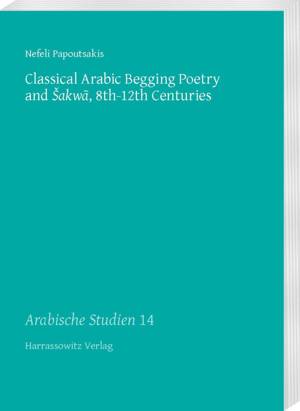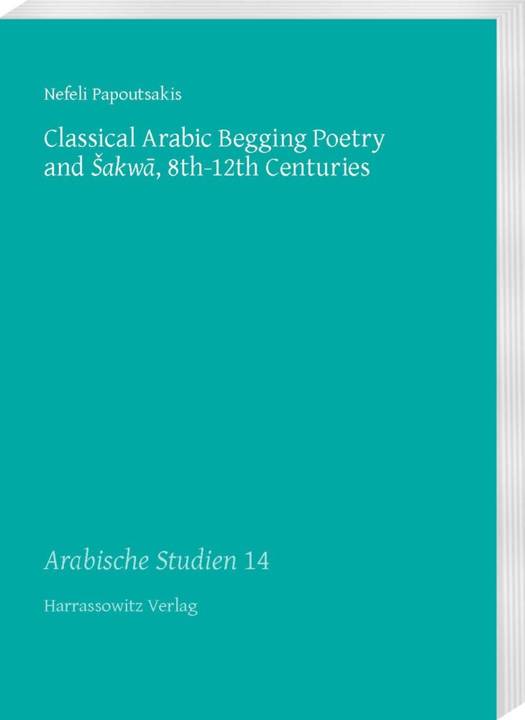
- Afhalen na 1 uur in een winkel met voorraad
- Gratis thuislevering in België vanaf € 30
- Ruim aanbod met 7 miljoen producten
- Afhalen na 1 uur in een winkel met voorraad
- Gratis thuislevering in België vanaf € 30
- Ruim aanbod met 7 miljoen producten
Zoeken
Classical Arabic Begging Poetry and Sakwa, 8th-12th Centuries
Nefeli Papoutsakis
€ 132,45
+ 264 punten
Omschrijving
This monograph traces the history of two little-known and understudied genres of classical Arabic poetry, namely begging and complaint (sakwa) poetry, from their beginnings to the end of the 12th century. The two genres are interrelated and have therefore been studied here in parallel. Begging poems are petitions in verse addressed to a patron and in which the poet poses as poor, dispirited and in need of support. Poets describe their supposed poverty using striking, yet patently unrealistic, exaggerated images (starved families, ramshackle houses, tattered clothes, squalor, mishaps, etc.), with a view not only to arousing the patron's sympathy but also to amusing him. Complaint poetry, on the other hand, aired the most diverse kinds of grievances, but by far the most common and therefore important were general plaints about one's times, contemporaries and milieu, as well as complaints about one's financial predicament. The study considers only these two categories of grievances, which are closely related with begging verse; because the blame of one's times, contemporaries and milieu centred on the supposed ignorance, baseness and stinginess of the poet's coevals, the disregard of culture, merit and talent, and the resulting misery and unprosperousness of the men of letters. The study shows that, since the 10th century, such moans became cliched themes of contemporary poetry, which poets felt obliged to include in their repertoire and which they mostly cultivated as a literary exercise. It is therefore wrong to take them literally or to regard them as subversive literature. Besides breaking new ground in the field of classical Arabic literature, the book will also be of interest to comparatists.
Specificaties
Betrokkenen
- Auteur(s):
- Uitgeverij:
Inhoud
- Aantal bladzijden:
- 254
- Taal:
- Engels
- Reeks:
- Reeksnummer:
- nr. 14
Eigenschappen
- Productcode (EAN):
- 9783447108720
- Verschijningsdatum:
- 19/07/2017
- Uitvoering:
- Paperback
- Formaat:
- Trade paperback (VS)
- Afmetingen:
- 170 mm x 239 mm
- Gewicht:
- 476 g

Alleen bij Standaard Boekhandel
+ 264 punten op je klantenkaart van Standaard Boekhandel
Beoordelingen
We publiceren alleen reviews die voldoen aan de voorwaarden voor reviews. Bekijk onze voorwaarden voor reviews.







